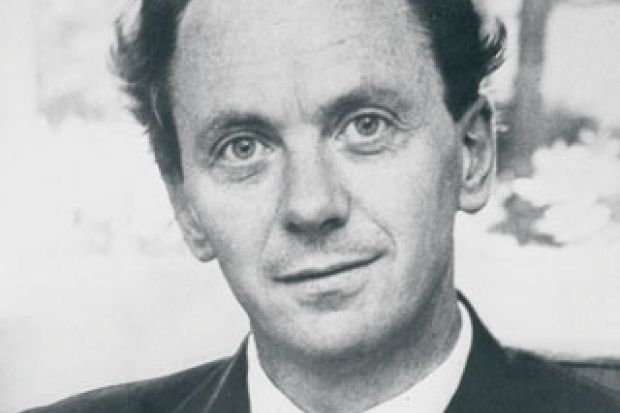The founding vice-chancellor of the University of Essex - an institution shaped by "his clear-sighted vision" - has died.
Sir Albert Sloman was born in Cornwall on 14 February 1921 and educated at Launceston College and Wadham College, Oxford, where he opted to study Spanish, for which he secured a scholarship, rather than his first choice of philosophy, politics and economics. A night-fighter pilot during the Second World War, he returned to Oxford for a PhD in 1945 but then took up an instructorship in Spanish at the University of California, Berkeley (1946-47).
A distinguished Hispanicist who wrote two books about the 17th-century playwright Calderon, Sir Albert worked at Trinity College Dublin (1947-53) before being appointed Gilmour professor of Spanish at the University of Liverpool (1953-62). For his last two years there, he was also dean of the Faculty of Arts.
Despite limited experience in senior management, the 41-year-old Sir Albert became the UK's youngest ever vice-chancellor in 1962, remaining at Essex until retirement in 1987. Greatly influenced by his experiences in the US, he was determined from the start to create a new style of British university.
The original Colchester campus was deliberately planned to foster an atmosphere of relaxed informality, which in Sir Albert's words would "provide an experience of living as well as an opportunity for learning".
The curriculum was always international and interdisciplinary, and the university soon developed a strong reputation, for example, in the hitherto neglected field of Latin American studies. Academics were expected to focus on research, to take sabbaticals at leading foreign universities and to attract their new colleagues back as visiting fellows.
Such bold initiatives received unusual public recognition in 1963, when Sir Albert delivered the prestigious annual BBC Reith Lectures on A University in the Making.
This proved something of a poisoned chalice, however, when Essex became a centre of student unrest later in the decade and the University Grants Committee placed strict limits on the expansion of student numbers.
Sir Ivor Crewe, master of University College, Oxford, who served as Essex's vice-chancellor from 1995 to 2007, recalled Sir Albert as someone "unswervingly liberal in his principles" who, despite these early setbacks, "took the long view and patiently repaired the university's reputation by promoting research excellence, expanding graduate numbers and attracting students from overseas".
"To this day," added Sir Ivor, "[Essex] bears the distinctive imprint of his clear-sighted vision of a university with a rigorous academic mission for modern times."
Sir Albert died on 28 July and is survived by Lady Sloman and their three daughters.
